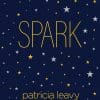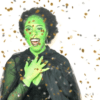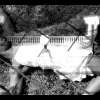Asexual and Aromantic: Exploring Life Alone but Not Lonely
The Twerking Academic
Artist’s Memo
The focus of this piece is to highlight and celebrate the asexual and aromantic community and what it means to exist outside of the expectation to be partnered. Much of the visual imagery centers around finding solace in not being defined by sexual desire or romantic attraction . I have found that much of the world operates under the allosexual, alloromantic assumption that everyone is seeking another body to caress or cuddle. When the pursuit of one or both types of connections is socially promoted as the “natural” order, it often leaves those of us who do not experience those same urges feeling rather unnatural or lost. Even in spaces and communities where connections that are non-heteronormative are celebrated, asexuals and aromatics often find their identities overlooked or erased. And so, displaying the ace colors (black, gray, white, and purple) felt even more vitally necessary in this Queer Special Issue.
I have found that much of the world operates under the allosexual, alloromantic assumption that everyone is seeking another body to caress or cuddle.
Presenting those colors is a declaration that ace and aro are valid orientations without qualifiers or required explanations. These orientations should not be perceived as the LGBT+ limbo until a “better” orientation can be found. Ace and aro people are frequently met with this type of reaction both in and out of the queer community. As a response to that reaction, I sought to personify what being ace and aro has meant to me with unapologetic boldness. At first glance, this statement would appear to be contradictory as I am aligning the visuals with a song called “Confidently Lost” by Sabrina Claudio. Ultimately, the phrase “confidently lost” captures a necessary balance of energy. The concept leaves room for self-discovery and roaming while simultaneously discouraging others from interfering and imposing their own personal convictions. A full and meaningful existence is possible outside of sex and romance.
Reference
Claudio, S. (2017). Confidently Lost. [Song]. On Confidently Lost. SC Entertainment, LLC
Credits
Featured image – an excerpt from the video
Video provided by Shanita Mitchell
Learn More
New to autoethnography? Visit What Is Autoethnography? How Can I Learn More? to learn about autoethnographic writing and expressive arts. Interested in contributing? Then, view our editorial board’s What Do Editors Look for When Reviewing Evocative Autoethnographic Work?. Accordingly, check out our Submissions page. View Our Team in order to learn about our editorial board. Please see our Work with Us page to learn about volunteering at The AutoEthnographer. Visit Scholarships to learn about our annual student scholarship competition.
Shanita Mitchell currently serves as the Assistant Director for the Rappahannock Scholars Program at the University of Mary Washington. Since graduating from UMW with her B.A. in 2012, she has continued to pursue her passion for providing underserved and underrepresented student populations with college access opportunities and scholarships by working in and with the Office of Admissions, Financial Aid, and serving as the advisor for various multicultural and performance organizations on campus. That same passion recently led Shanita to acquire her M.A. in English from Southern New Hampshire University with the intent to expand beyond the administrative side of higher ed and into the classroom. Shanita also works as a dance instructor at The Courthouse School of Ballet and Umbiance Dance Studio. In her spare time, Shanita enjoys portrait painting, amateur photography, costuming, video editing, and advancing her study of Black feminist thought, Critical Race Theory, and autoethnography as a meaningful expression of self.













